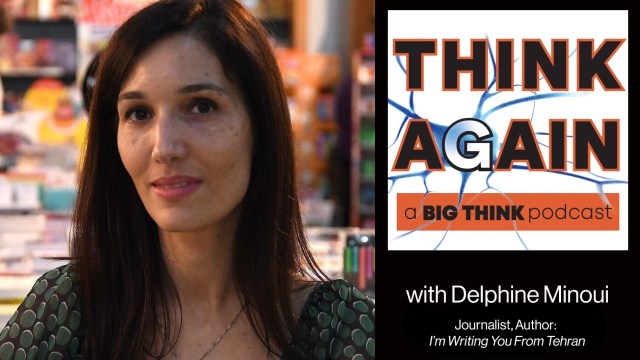Highlights of the “debate of the century”: Jordan Peterson and Slavoj Zizek

Youtube
- Zizek and Peterson went head-to-head recently at a debate in Toronto.
- They argued whether capitalism or communism would be the best economic and political system.
- The two generally agreed on their critiques of political correctness.
In intellectual circles, the recent “debate of the century” between the Canadian psychologist Jordan Peterson and Slovenian philosopher Slavoj Zizek was a real heavyweight bout. On April 19th, at the Sony Centre in Toronto, these two celebrated thinkers (and Big Think contributors) went head to head in a duel promisingly-dubbed “Happiness: Capitalism vs. Marxism”.
While the two take different political stances, both have been known to rail against political correctness and found that issue in common. Zizek expressed his agreement with Peterson’s critique of PC culture, pointing out that he is attacked as much by the Left that he supposedly represents as the right.
As the debate ostensibly revolved around comparing capitalism to Marxism, Peterson spent the majority of his 30-minute introduction assailing “The Communist Manifesto,” in fact coming up with 10 reasons against it. Among his points was that Marx and Engels focused too much on class struggle being the primary feature of modern society while ignoring the existence of hierarchy as a fact of nature.
Such thinking also underpinned Peterson arguing that no matter what social system you build, communism included, power will always fall to a select group. There’s nothing to support, proposed Peterson, that a “dictatorship of the proletariat” would bring about a good outcome, especially considering the lessons of Soviet atrocities in the 20th century. Why would the proletariat be more capable of leading?
Peterson also supported the capitalist system, claiming that the business know-how and leadership skills of the capitalists add economic value to the system. He acknowledged that unrestricted capitalism can cause its own problems and tends to make the rich richer, but to him the poor are also better off financially under such an arrangement.
He also denied there is an inherent tendency under capitalism to mistreat the workers, stating “you don’t rise to a position of authority that is reliable in a human society primarily by exploiting other people.” Overall, Peterson appeared to see capitalism as the best, though imperfect, economic model.
Slavoj Zizek on political correctness
In his turn, the self-proclaimed “pessimist” Zizek didn’t always stick the larger economic topics, and did not want to be called “communist”. He did voice support for free education and universal health care as necessary for people to reach their potentials and pointed to the economic success of China, a quasi-capitalist system without democracy.
Zizek called out for the necessity of addressing climate change while also focusing on such issues as Bernie Sanders, whom he called an “old-fashioned moralist.” Zizek sees Sanders as being unfairly portrayed as a radical.
Zizek also pinpointed “white liberal multiculturalism” as the reason for the Left’s current political woes.
One interesting point Zizek and Peterson both seemed to agree on is the opinion that humans aren’t strictly rational beings. Instead they often engage in self-destructive behavior.





